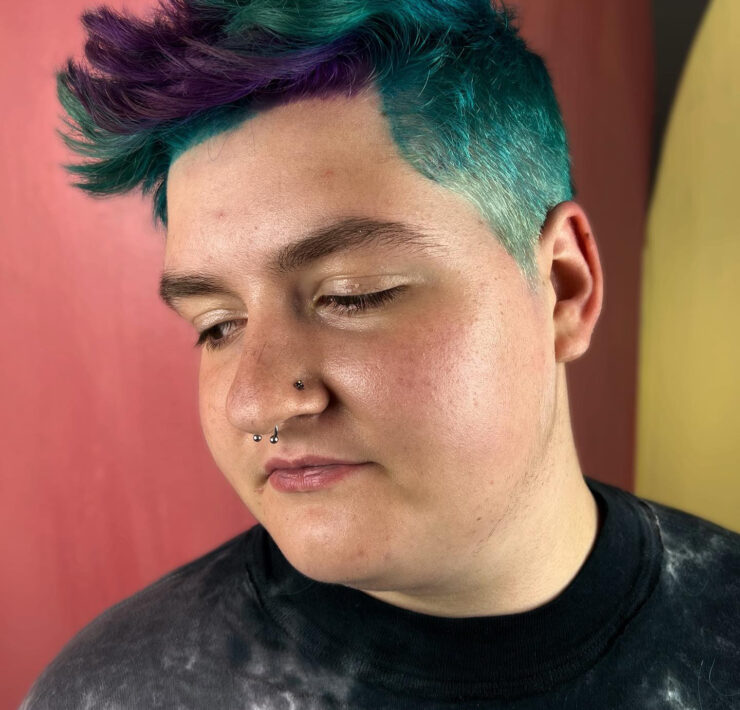Transphobia at the Pharmacy: How Stigma Hurts Gender-Affirming Care

Back in April, a pharmacist at a CVS in Fountain Hills, Arizona, refused to fill the hormone-replacement therapy (HRT) prescriptions of Hilde Hall, a transgender woman who had just been prescribed the treatment combination by her doctor. A few weeks later, Hall shared this story on the American Civil Liberties Union blog, stating that she was never given a clear reason why she was denied her medications, and instead had to deal with the pharmacist “asking, loudly and in front of other CVS staff and customers, why I was given the prescriptions.”
Although Arizona is among a handful of states wherein state laws permit pharmacists to reject prescriptions due to moral objection, CVS quickly apologized and fired the employee.
The ACLU petition which spurred this national outcry also sought to pressure new CVS company policies and instruction which would explicitly prohibit this going forward, but we haven’t seen that as of yet.
There’s been a good deal of coverage as of late in queer media outlets of the roadblocks which trans and non-binary people face on their way to getting on HRT; from having to repeatedly convince doctors of the legitimacy of their gender dysphoria, to dealing with non-inclusive health insurance, folks generally have to jump through a plethora of hoops to begin medical transition.
But as Hall’s story shows, getting your prescription filled might spell further issues, which can vary in impact and frequency.
“Early on in my transition, I definitely felt nervous when I picked up my prescription,” said Ash, who has taken female-to-male hormones for the better part of a decade.
“That nervousness wasn’t fueled by any bad experiences with pharmacists on a personal level, but it was at least in part fueled by the bad experiences shared by individuals that did have negative interactions with pharmacists or other customers while attempting to pick up their hormone prescriptions.”
Trans and gender-nonconforming individuals can often lead rather similar lives to cisgender people, but may still face a looming fear of harassment and stigma, and the pharmacy experience is a manifestation of this cultural reality.
According to Emily Kerr, a Denver psychologist with extensive experience counseling members of the LGBTQ community, these kinds of patterns can be genuinely detrimental. She claimed that, “these experiences can be unfortunate setbacks for individuals who feel confident in the trajectory of their transition. It may be helpful to implement policy and procedure around preferred pronoun use, privacy surrounding disclosure to other family members on the health plan who may also access medication from that location, and finally, to always offer an individual consultation for any person if the provider has questions or concerns about the medication.”
Simply making privacy more of a priority at pharmacies is something which Ash supports as a comforting and protective measure. He remarked that pharmacies too often consist of “pharmacists that loudly ask ‘and what medication are you picking up?’ without an option to answer privately.”
Insurance confusion, pharmaceutical incompetence, and allowable bigotry can all lead to increased vulnerability for trans people, but cultural shifts toward social acceptance and respect for privacy may help to make the gender-affirmation process a bit smoother.
What's Your Reaction?
Ezra Kronfeld is a journalist and degenerate. Her interests include media, inequality, cultural taboos, sexuality, art, politics, and the like. @EHKronf ezrakronfeldwrites.net










